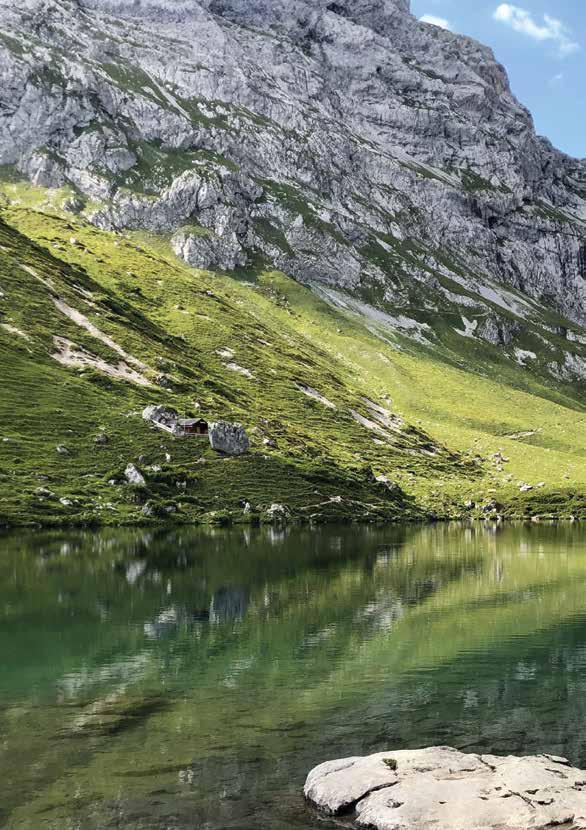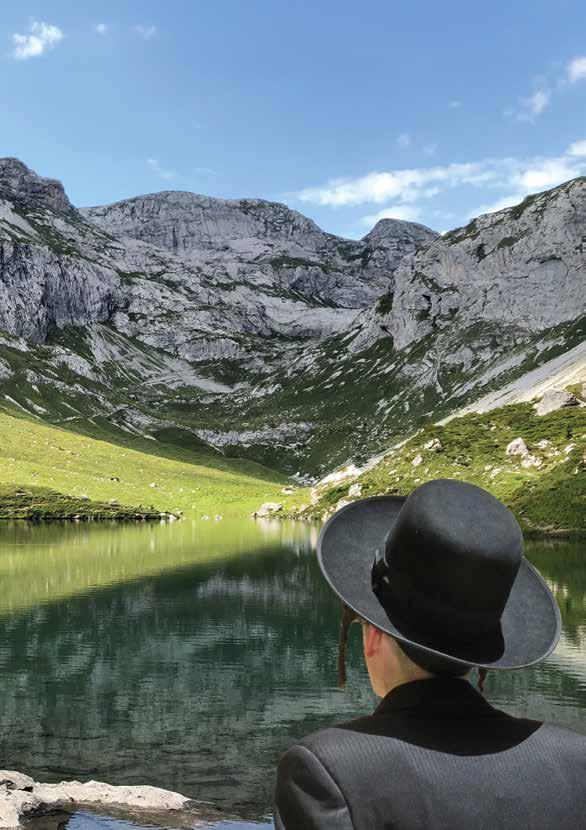

Welcome to the Swiss Alps
Insights into local rules
A guide to making a kiddush haShem
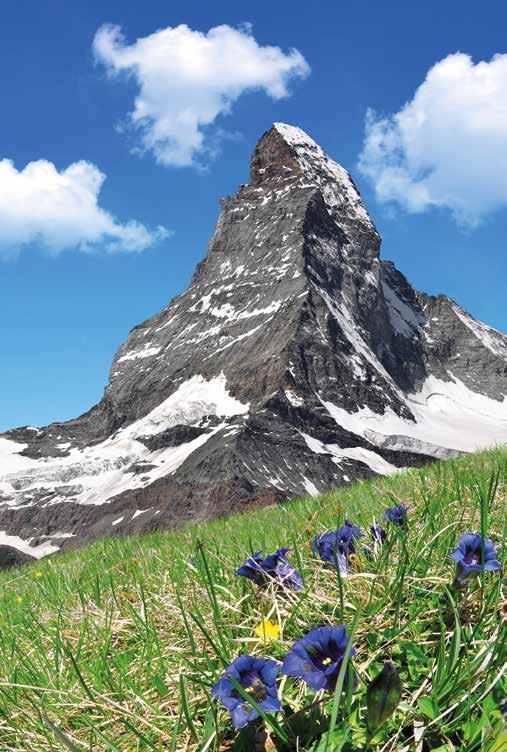
«Matterhorn in the foreground blooming gentian» © by Venzav, depositphotos
Welcome to Switzerland
The Swiss Alps are a popular destination for many Jewish travellers. They offer numerous tourist attractions with a wide range of activities. Around 18,000 Jews live in Switzerland (approx. 0.2% of the total population) and several cities boast vibrant Jewish religious life with numerous synagogues and places of worship.
This booklet aims to give you tips on important everyday matters at your holiday destination, such as kosher food, which can be helpful during your visit. Please note, however, that this is not a halachic travel guide.
This brochure is also intended to help prevent misunderstandings between Jewish tourists and locals. In the past, there have been incidents that have led to some highly unpleasant confrontations and reports about Jewish tourists in Switzerland in the Swiss media. So it is even more important that you familiarise yourself with Swiss culture and the local rules of conduct. As representatives of the Jewish people, we must take this responsibility seriously. Media coverage has a direct impact on how the Jewish community in Switzerland is perceived, particularly at a time when the Jewish population is under increasing scrutiny and pressure.
This guide aims to explain some specifics about Switzerland and social etiquette, norms and conventions, to help you experience an unforgettable holiday in Switzerland.
Enjoy your stay and have a relaxing time!
The Jewish project Likrat Public is there to support you in your holiday destination
During the peak season, you will find Jewish mediators from Likrat Public at various Swiss holiday destinations. Likrat Public is a dialogue and education project run by the Swiss Federation of Jewish Communities SIG, the umbrella organisation of Swiss Jews. The project was launched in 2019 with the aim of mediating between Jewish tourists from all over the world and the local population. Cultural differences can lead to misunderstandings, especially in the tourism sector. Local people often wonder how to treat Jewish guests appropriately – and vice versa. The summer project aims to head off cultural misconceptions and spark dialogue between local people and Jewish guests to promote mutual understanding.
The Jewish mediators of Likrat Public, our «Likratinos», are at your disposal for all your questions and further information. Don’t be afraid to talk to our Likratinos. You can recognise them by their blue hoodies and red T-shirts. Many of them speak Hebrew in addition to German, English and French.
If you have any questions, please do not hesitate to contact us:
Likrat Public hotline for travellers: +41 43 305 07 65
Get in touch: travellers@swissjews.ch www.likrat.ch/en/travellers
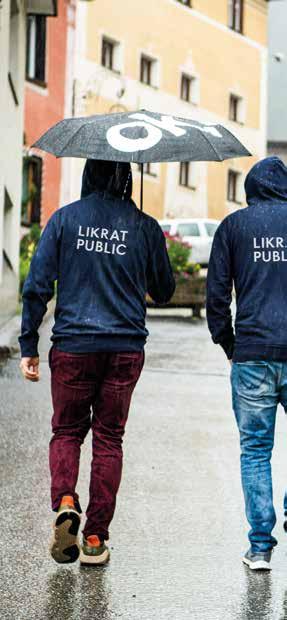
«Likratinos on duty» © by SIG
Swiss culture and social norms

The Swiss are known for being friendly, punctual and organised. Please note that there are certain social norms that are specific to Switzerland. Some of the rules listed below are particularly important and it is a good idea to follow them. These tips are intended to help you make your trip as smooth as possible so you feel comfortable during your stay in Switzerland. Always remember the saying: «When in Rome, do as the Romans do!» (see also the Jewish concept of Dina de-Malchuta Dina).
Please accept requests and suggestions as just that and view any criticism as an interest in harmonious coexistence rather than an expression of antisemitism.
Behaviour
Languages
Switzerland has four official languages: German, French, Italian and Romansh. Many people, especially in tourist resorts and in the service sector, speak several languages and above all English.
Greetings
In Switzerland, especially outside the big cities, it is common for complete strangers to greet each other on the street with a «Guten Tag», «Grüezi», «Bonjour» or simply «Hallo». Swiss people, including people of different genders, often shake hands as a greeting. Most Swiss people are unfamiliar with the concept of shomer negiah. To avoid appearing rude, simply explain that strictly observant men and women do not touch each other for religious reasons.
Magic words: «bitte» and «danke»
«Bitte» (please) and «danke» (thank you) are polite and appreciated. Swiss people also often start their sentences with «Entschuldigen Sie bitte» (excuse me, please) before asking a question.
Respect and consideration
Quietness
Switzerland is very quiet, especially at night. In public spaces, the Swiss converse in low voices, even on the phone. Anyone used to loud city noise may need to adjust. Keep in mind, however, that this quiet atmosphere is part of what makes Switzerland so charming and relaxing.
Please note that in Switzerland, night-time quiet hours apply from 10:00 pm to 6:00 am, both outdoors and in flats/houses.
Punctuality
Punctuality is a top priority in Switzerland. This applies not only to public transport, but also to appointments and booked activities. It’s better to be five to ten minutes early than late.
Littering
Switzerland is known for its cleanliness and visitors are expected to conform to its standards. Littering is perceived as very rude. Always use the public waste bins when you’re travelling, walking or hiking. Littering can be punished with a fine of up to CHF 150.
Please remember that carelessly discarded chocolate wrappers from the supermarket’s kosher range can be an indication of the culprit.
Large groups and families
Large groups and families with numerous children can push buses and gondolas to their capacity limits. If possible, try to travel separately and meet again at your destination or on the mountain. Informing the transport companies in advance can help you and them with their preparations.
When you visit stores as a group, always remember to leave enough space for other customers to pass by.

«Wooden bench under tree» © by Russieseo, depositphotos
Practical information
Business hours
Banks are generally open from Monday to Friday, from 8:30 am to 4:30 pm. They are closed on Sundays and public holidays. Many banks have ATMs that accept foreign bank cards. Please check with your bank whether your bank card is valid in Switzerland.
The post office is usually open on weekdays from 8:00 am to 12 noon and from 2:00 pm to 5:00 pm, and closed on Sundays.
The shops in smaller towns and villages are usually open from 8:30 am to 12 noon and from 2:00 pm to 6:30 pm. In larger cities, many shops remain open at lunchtime.
Opening hours may vary in different towns and villages. Always enquire on site.
Please pay attention to the opening hours of shops. If a shop closes at 6:00 pm, don’t enter at 5:58 pm to complete purchases after the shop closes. The shop is supposed to be vacated by 6:00 pm.
Currency
The currency of Switzerland is the Swiss franc, which is usually written as CHF or Fr. Many prices are also labelled in euros so that visitors can compare prices. Retailers can accept euros, but they are not obliged to do so. You will normally get change in Swiss francs.
Credit cards, mainly Mastercard and Visa, are widely accepted.
Prices
Negotiating prices is not common. The stated prices for groceries, holiday rentals and tickets are fixed prices and non-negotiable. Group prices are sometimes offered, but every person in the group must have a ticket, including children (according to their age).
Electricity
Like most European countries, Switzerland has 230 V/50 Hz voltage. They use type C (2-pin) and type J (3-pin) plugs (2-pin type C plugs also fit in J sockets).
Most sockets are designed for three-pin round plugs. However, the standard continental plug with two round pins, which is used for many electrical travel items, can be used without problems.
Kosher food
Most products sold in normal supermarkets are not labelled by a hechscher, so please check the kosher lists below, which include all kosher products available in Switzerland. You will find outlets of the two big supermarket chains Migros and Coop in almost every village. Most of the products on the kosher lists are available either in Migros or Coop stores. Sometimes, you will even find products with a kosher stamp in these shops. Kosher foods are also available at Eurospar in Davos.
Tips for the supermarket
• Only touch the food items you intend to buy. Sampling vegetables, fruit and bread before buying is not only unhygienic, it is also unwelcome in Swiss culture. Do not allow children to touch anything.
• In the supermarket, use a shopping cart or basket for your purchases, not your own shopping bag.
• Only enter the store in smaller groups.
You’ll find the kosher list here: www.irgz.ch/koscherliste/. If you do not have a mobile phone with a browser, we can also send it to you by e-mail. You can order the list at info@swissjews.ch
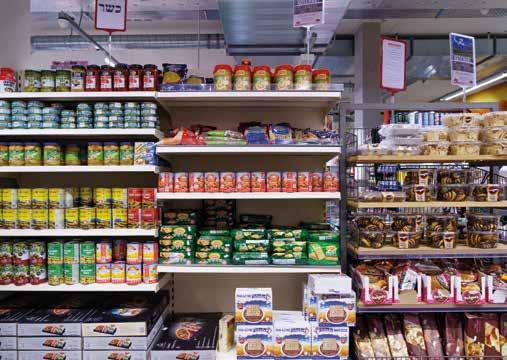
Non-kosher restaurants
When you visit non-kosher restaurants, it is considered rude to order only tap water. Each adult must order their own beverage from the menu. Eating your own food in restaurants and on their terraces is forbidden, so please do not occupy tables if you are not ordering anything. You can picnic with your own drinks and food in dedicated zones. Please enquire locally about the location of picnic areas.
Waste
Always use the public waste bins or the official waste bags. In Switzerland, almost all municipalities have fee-based waste systems. If you spend your holiday in a holiday apartment, you must use the official fee-based waste bags, which you can buy in the supermarket. Sometimes, they are also provided by the host. Hosts and tourist information services can tell you about waste regulations in the area. Illegal waste disposal can result in heavy fines. Disposal of household waste in public waste bins is also prohibited.
If there are no waste bins available on hikes or excursions, please take your rubbish with you and dispose of it properly later. In natural settings, on lakes and in the mountains, the rule is: leave areas as you found them.
Everything you take up the mountain or on a hike must also be taken back into the valley and properly disposed of. We recommend that you always take a small plastic bag for waste so that you can dispose of it in the village or at the cable car.
Waste left lying around not only pollutes nature, it is also dangerous for animals. Wild animals and farm animals die every year from eating plastic packaging and empty cans.
«Kosher department» © by Alain Picard
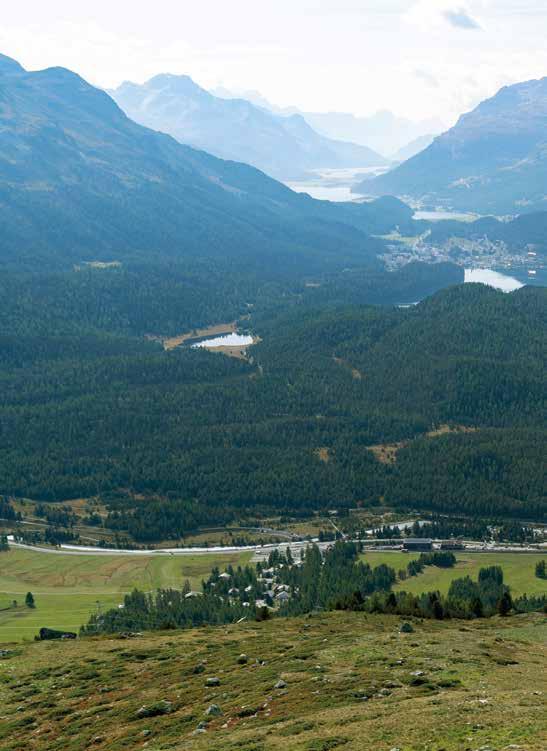
«St. Moritz» © by Alain Picard
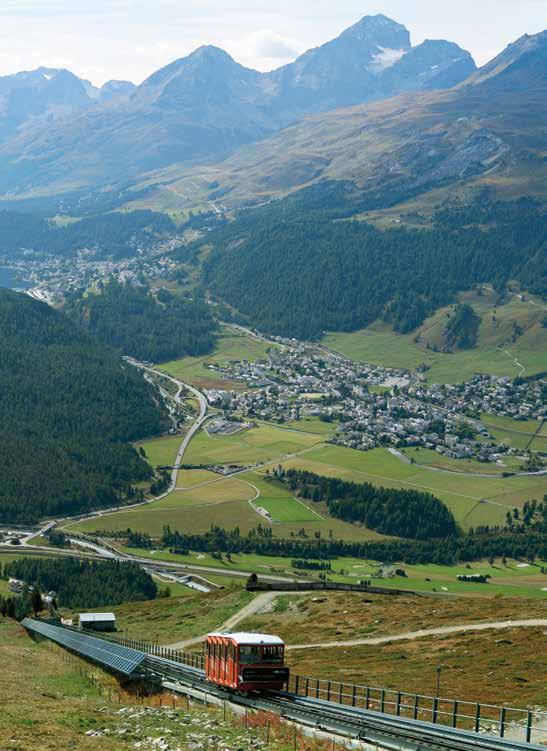
Public transport and mountain railways
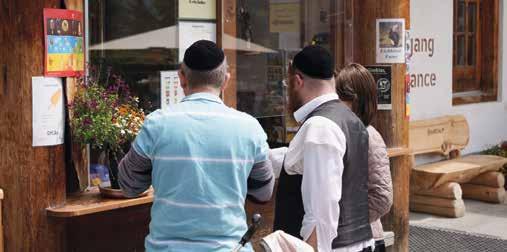
Basic rules: be patient and be prepared to queue In Switzerland, things take time and everyone waits patiently in line (at least one person in the group or family). On public transport, please wait until all passengers have disembarked and get on without pushing. This also applies to cable cars and mountain railways. Those who came first have priority. If your children are in the queue as well, they should stay in line. Please instruct them accordingly.
Remember:
staying calm and friendly always helps!
Tips for the bus
• Be considerate of other people on the bus and avoid bashing them with your rucksack.
• Give up your seat to older or disabled passengers as well as pregnant women.
• On many forms of public transport in Switzerland, food is not appreciated and may even be banned.
• Do not stop the bus to hold it up for a larger group of people. Travel in smaller groups or wait for the next bus, which never takes too long.
Tips for mountain railways/cable cars
• Please note the opening hours of the cable cars and find out the time of the last descent. Don’t miss it if you don’t want to walk.
Guest cards
Most holiday regions provide their guests with free cards or passes, e.g. for free use of local public transportation or discounts on activities. A guest tax must therefore be paid for each person (including children) and for all overnight stays from the day of arrival to the day of departure. So, the number of people travelling must match the number of people indicated at the time of booking. The guest card is issued by the host. Please keep the card in a safe place and report any loss immediately.
The cards are usually personalised and entitle only the owner whose name is on the card to use them. Cards and tickets are not transferable, and are often only valid in conjunction with a passport or ID card. Passing the card on to someone else is forbidden, and tantamount to fraud. Any infringement will be punished and the cards will be invalidated.
«Kosher ice cream» © by Alain Picard
Activities
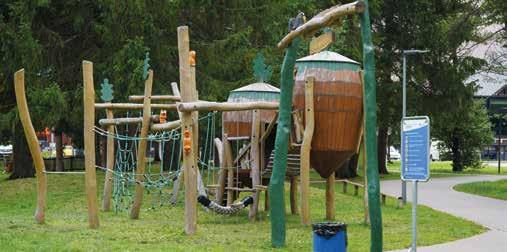
Swimming pools
Most swimming pools and beaches are open for men and women at the same time. Swimwear must be worn for swimming or bathing. Swimming with T-shirts or other items of clothing not intended for use in the swimming pool is not allowed.
Playgrounds
Public and free facilities such as playgrounds, play boats and climbing facilities are available for everyone. Here, too, the rule is that adults and children treat each other with respect. It is customary to use such facilities for a reasonably limited period of time so that other children or guests can also use them.
Golf courses
Trespassing on golf courses is forbidden and extremely dangerous.
Toilets
In most cases, you can only use toilets in restaurants or hotels if you’re eating or staying there. Only visit the toilet once you have placed your order. Sometimes, you can use the toilet in a restaurant or hotel for a small fee (between 50 cents and 2 francs) –ask the staff. If you’re not consuming food or drink, it is a good idea to use public toilets, for example at the mountain or valley stations of the cable cars. There may be a charge for use.
On excursions in natural surrounds, always use the public toilets. Human waste in the wild is not only an unpleasant sight, it is also dangerous for animals that come into contact with human pathogens.
«Playground» © by Alain Picard
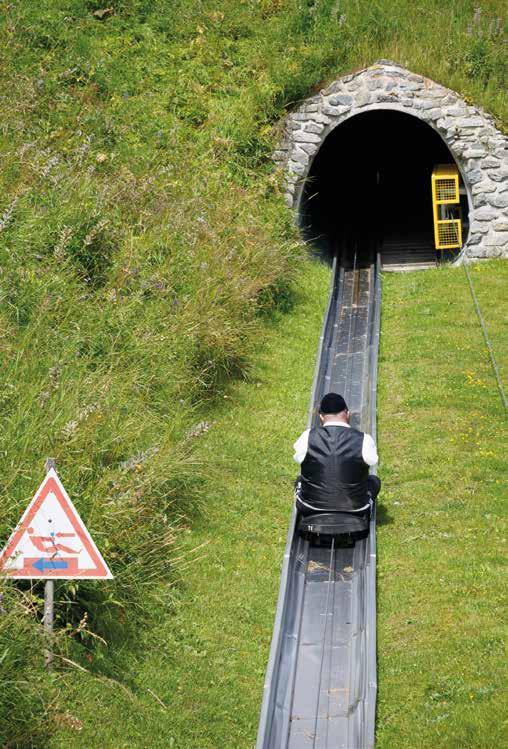
«Uphill sliding» © by Alain Picard
Safety in the mountains – recommendations
Hiking in the mountains takes preparation, even if you’re only going for an hour. Stick to the rules and your trip will be a safe and enjoyable experience.
Preparation
• Level of difficulty: don’t underestimate the difficulty of hiking, and plan your trip in advance. There are usually different routes for different levels of difficulty. Many trails in the mountains are high alpine hiking trails. These are often steep and narrow paths that are not suitable for pushchairs.
• Weather and daylight: before you go on a hike, check the expected duration and the current weather conditions. Start your hike as early as possible. Keep in mind that hiking in the mountains can quickly become dangerous, especially when the weather changes. It is best to finish your mountain hike by nightfall or when there’s a change in the weather.
• Stay in touch: make sure that someone (for example, friends at the hotel) knows which route you are taking that day and when you plan to return from your hike.
• First aid: take a first aid kit with compresses, gauze pads, bandages and more.
On the hike
• Marked paths: only use the marked path and never leave it. This is for your own safety, but also for the sake of nature. There are signs and markings on fences, rocks and trees to help you get to your destination safely. Treading on flowers, meadows (high grass) and pastures is not allowed in many places. This also applies to the grounds of private farms and houses, even if you do not see any fences.
• Signage: pay attention to signs. Hiking trails are usually intended for hiking and are generally not suitable for pushchairs. You can get maps from the tourist office which will show you the exceptions. Bike paths should only be used for biking. Hiking on bike paths is very dangerous, as bikers travel at high speeds and will not be able to swerve to avoid collisions.
• Shoes: always wear sturdy, appropriate footwear.
• Water: make sure you take enough water with you, especially when it is hot and sunny.
• Crossing: on narrow hiking trails, hikers form a line to facilitate crossing with oncoming hikers.
• Throwing stones: don’t throw rocks over cliffs, as they may hit other hikers below.
• Health: when you travel to high altitudes, always take enough time for the ascent, giving the body time to adapt. Headaches, dizziness, nosebleeds and breathing difficulties are all symptoms to watch out for. Pregnant women and people with a history of heart or lung disease should consult their doctor before going on holiday at high altitudes.
• Fire pits: always use the marked fireplaces and do not try to light fires in places that are not intended for this purpose. If you light a fire, make sure you put it out before you leave the site. The risk of forest fire is high.
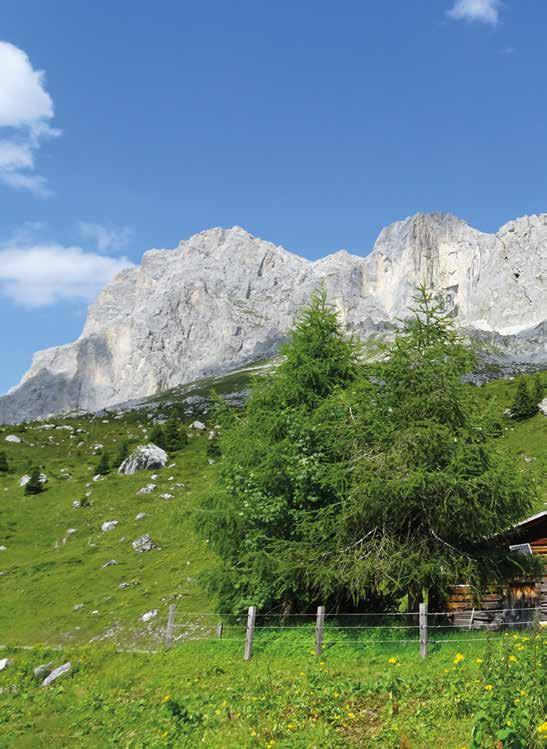
«Partnun» © by Alain Picard
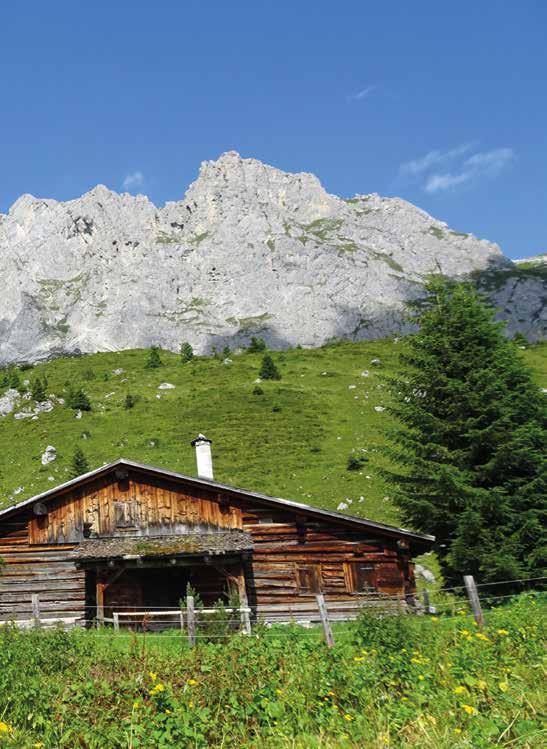
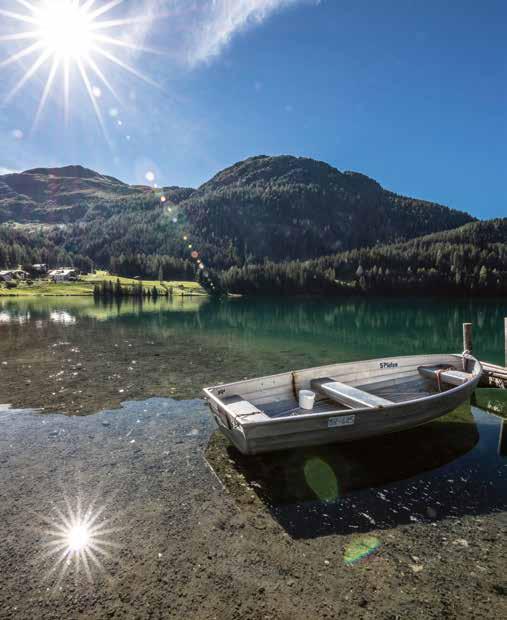
«Destination Davos Klosters» © by Andrea Badrutt
Traffic rules
Switzerland’s traffic rules apply to motorists, pedestrians and scooters alike. Please note that the Road Traffic Act is strictly enforced and the fines are very high.
Pedestrians
Do not walk on the road or along railway tracks. This is dangerous and strictly forbidden. If you are travelling as a family or in a larger group, make room for oncoming pedestrians on the pavement.
Pedestrian crossings
The rules for pedestrian crossings are very strict. Pedestrians always have right of way at pedestrian crossings.
If available, always use pedestrian crossings to cross the road, especially as a large group. This is not only dangerous, it also holds up traffic.
No stopping
Many roads have no-stopping zones for cars. Footpaths, bus stops and crossroads are not suitable places for picking up or dropping off passengers. This can lead to dangerous situations, and the police may impose fines.
Accommodation
Rental apartments
Unless expressly agreed, the rental period runs from Saturday to Saturday. The reason for this is the final or initial cleaning and the tenant moving in after you. It’s fine to ask your host if you can stay another day. If the host says no, it's not because they’re not willing, it will be due to long-term planning or work plans.
To regulate cohabitation and to encourage mutual respect, most larger residential buildings have their own house rules. You must observe these rules, and any instructions from the caretaker, at all times.
Kashering
There are different ways to kasher a kitchen. If you do so, make sure not to damage the stove or other electrical appliances.
If you have made the holiday home kosher, please remember to restore it to its original condition when you leave.
Paying for repairs of damaged kitchen appliances and stoves is the responsibility of the guest, and can be expensive.
Shabbat rules
If you are spending Shabbat in a hotel or an apartment, it is important to inform the host in advance. Most Swiss people are unfamiliar with Shabbat customs. Inform your host politely of your needs and ask them to help you, and keep them informed about the preparations.
Ask your host
• for a key instead of a key card for the hotel room
• to keep the lights on
• to cover the light sensors
• to remove the light bulb from the fridge
• for a safe place where candles can be lit safely
Remember: electric lights, fire alarms and similar devices may not be deactivated without prior agreement with the host.
Some apartments have hot plates for Shabbat. You can also purchase them in certain shops, such as Eurospar in Davos.
Pushchairs
Pushchairs must be stored in the apartment or in a designated area of the building. Never obstruct the entrance or stairwell, as these serve as escape routes in the event of a fire. Ask your host about the best place to store pushchairs.
Final cleaning
When you leave a holiday apartment or a hotel room at the end of your stay, make sure you leave it swept clean, even if you are paying for the final cleaning. In Switzerland, swept clean generally means: floors thoroughly mopped or vacuumed, kitchen and bathroom roughly cleaned and waste properly disposed of. The final cleaning does not include the repair of furniture or appliances, so it is a good idea to be careful with any items you use. Repairs or replacements for damaged items in the home are invoiced retrospectively.
A final clean of the apartment by the host is usual and is subject to a fee. The host’s employees will take care of the thorough cleaning, such as shampooing the floors, etc.
You can find further information about your obligations in the relevant clauses of your rental agreement.
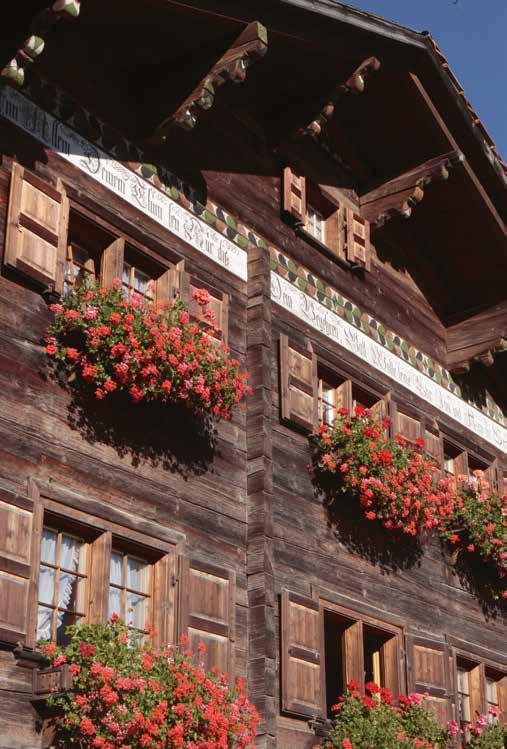
«Destination Davos Klosters» © Maria-Cecilia-Austin
Help in emergencies
Have the telephone numbers of emergency services handy and contact them if you need help.
Telephone numbers
117 Police
118 Fire brigade
144 Emergency rescue service (ambulance)
For the REGA air rescue service, which primarily provides emergency medical assistance in remote regions, dial 1414 or +41 333 333 333.
Hazoloh +41 44 202 30 60
Security and antisemitism
Switzerland is a safe country and there are no dangerous cities or districts. However, it is always a good idea to pay attention to what is going on around you, especially in the evening and in places where young adults gather at weekends.
If you feel threatened, dial 117 immediately to alert the police.
If you experience an antisemitic incident, please report it to the Swiss Federation of Jewish Communities SIG: www.swissjews.ch/en/report/

Please note that not every misunderstanding is an antisemitic incident. In most cases, a brief explanation can solve the dispute and de-escalate the situation.
Swiss Federation of Jewish Communities SIG
The SIG is the umbrella organization for eighteen Jewish communities in Switzerland. It represents the interests of Swiss Jews in relation to political groups, the authorities, institutions and the media. The SIG represents the Jewish community in a large number of groups in the areas of politics and civil society, on interfaith bodies and in international Jewish organisations. Its work also focuses on reinforcing the Jewish identity and sense of community, disseminating knowledge about Judaism and preserving the Jewish cultural heritage and remembrance of the Shoah, and preventing antisemitism and racism. The SIG also advises and supports its member communities.
On our website, you will find comprehensive information on Jewish life in Switzerland, including more information on Jewish institutions, congregations, synagogues and much more: www.swissjews.ch/en/jewishlife/
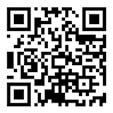
© Copyright SIG 2024
Cover: «Lake Partnun» © by Alain Picard Layout and graphic design: picard-und.ch
Gotthardstrasse 65 | PO-Box | CH-8027 Zurich +41 43 305 07 77 | info@swissjews.ch | swissjews.ch
